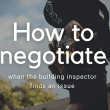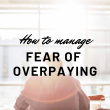UPDATED: May 2020
Everyone wants to avoid a multiple offer situation. We all want to negotiate directly with the owner, one on one. It’s programmed into our genes to want to start off low, see what the vendor comes back with and maybe meet in the middle if it works for us.
To buy a home any other way feels like a bit of a let-down: “We never got to show off our sweet negotiating skills!”.
In a hot market, it feels like you are being pitched against every other buyer with one chance to put in your best offer and no opportunity to negotiate if you fall a bit short.
Sound familiar?
Welcome to the world of multiple offers, Auctions, Tenders and Deadline Sales. Often unheard of in overseas markets (like South Africa, USA, and the UK), these are processes that are now used for the majority of property sales in New Zealand’s main Cities (Auckland, Wellington, Christchurch). They are simply a function of the type of real estate market we have seen for many years now. A market with a systemic shortage of housing in our main centres.
If / when the market ever turns to crap (or slows down) you will see a whole heap more properties being marketed with a price. Why? Well, when there are 50 x 3 bedroom houses on the market in one suburb you have to be the best-priced home to attract what few buyers there are to go around. When there are 5 x 3 bedroom houses on the market in that same suburb and 30 – 40 groups at each open home, you are going to have competition.
When there is competition amongst buyers, the owners want to know they are getting the best possible price. That’s where Deadline Sales, Auctions and Tenders come in.
The New Zealand real estate industry is, in my opinion, a world leader in this regard. Which is often great for sellers if the process is run well but can be tough for buyers.
Read: What on earth is a Deadline Sale?
Should you just avoid buying a house altogether and wait for the market to tank?
That is one argument – only buy when the market is at it’s worst and there is less competition. The only problem is that you might be waiting a long time.
Even when the global financial crisis hit (2008 – 2010) we still received multiple offers on attractive properties. In a popular area, good houses will sell well in any market. So if you want to buy a nice sunny, weatherboard home with good access and indoor/outdoor flow then you will probably have to compete in a multiple offer situation to buy it. No matter what sort of market we are in.
How do you approach it then?
“Aaargh I friggin hate Tenders so much!!”
I understand. I bought my first home at a Tender and I remember lying awake at night trying to decide what number to put down. Strangely enough, that number kept slowly increasing as I got closer to the deadline date. Sound familiar?
This post, titled: ‘How to negotiate like a price’ should be essential reading for anyone in a multiple offer situation.
It’s also worth checking out the official REA guidelines on multiple offers.
These steps will also help…
Step 1. Ask questions and delay submitting your offer until the last minute.
Information is your most valuable resource when it comes to buying a home in a multiple offer scenario.
If the deadline is 1pm on Wednesday, submit your offer at 12:50pm and before making your final decision on price, ask the salesperson:
“Have you received any other written, signed offers on this property? Or are we the only one?”
They are obliged, in most circumstances, to give you a direct answer to this question.
I would also ask for a detailed explanation of their multiple offer process. This will vary hugely between different real estate agencies (and sometimes between different salespeople from the same office). Ask when your offer will be presented and when you can expect to receive an answer back from the owner.
Note: If you are waiting until the last minute to submit your offer, remember that houses can sell before the advertised deadline. No matter what the salesperson says in their advertising. So as soon as you have interest in the property, be sure to ask the agent to let you know if the deadline is brought forward.
Step 2. Remember that buying a house that other people like is a very good idea.
It shows you have good taste and a home that attracts competition now, should also attract competition when you come to sell in 5, 6, 7 years time. Especially if it has these fundamentals.
Step 3. Recognise that getting a ‘great deal’ and a ‘great house’ are almost always mutually exclusive.
Buyers want to get the best deal they can and love any opportunity to negotiate. But the better a home is, the less negotiating leverage buyers will have.
Too many buyers pass on a great home because they are not able to get the discount they were hoping to get. Or because there was too much competition. Only to end up purchasing an inferior property later.
Step 4. Find your closest comparable sales.
The agent might give you a ballpark price range but are you really going to rely on what they say? What if they are just trying to quote it low to attract interest? What if they quote it too high, you take their advice and end up offering $100k more than you needed to? Or worse still – you don’t offer because you thought it was out of your price range and you find out it ended up selling for a price you would have paid!
Ideally, I would start looking well before you are ready to buy. Even before you have finished saving a deposit. Look at 15 or more properties that would be in your target price range, guess what they will sell for then find out the actual sale price and see how close you got. If you are about to spend $500k+ shouldn’t you do some research first?
Take a moment to consider how much money it is that you are about to spend… How long would it take you to save that much?
It can be easy to be flippant when we are spending the bank’s money.
Always remember this phrase: “Buy with emotion but justify with logic.”
For tips on working out a price, check out: How to work out the value of any property.
For specific tips on how to structure your offer read ‘how to win a Tender’ and ‘tips for buying at Auction’.
Do you need advice specific to your situation? Click here to book a consultation online.
Photo by sydney Rae on Unsplash









